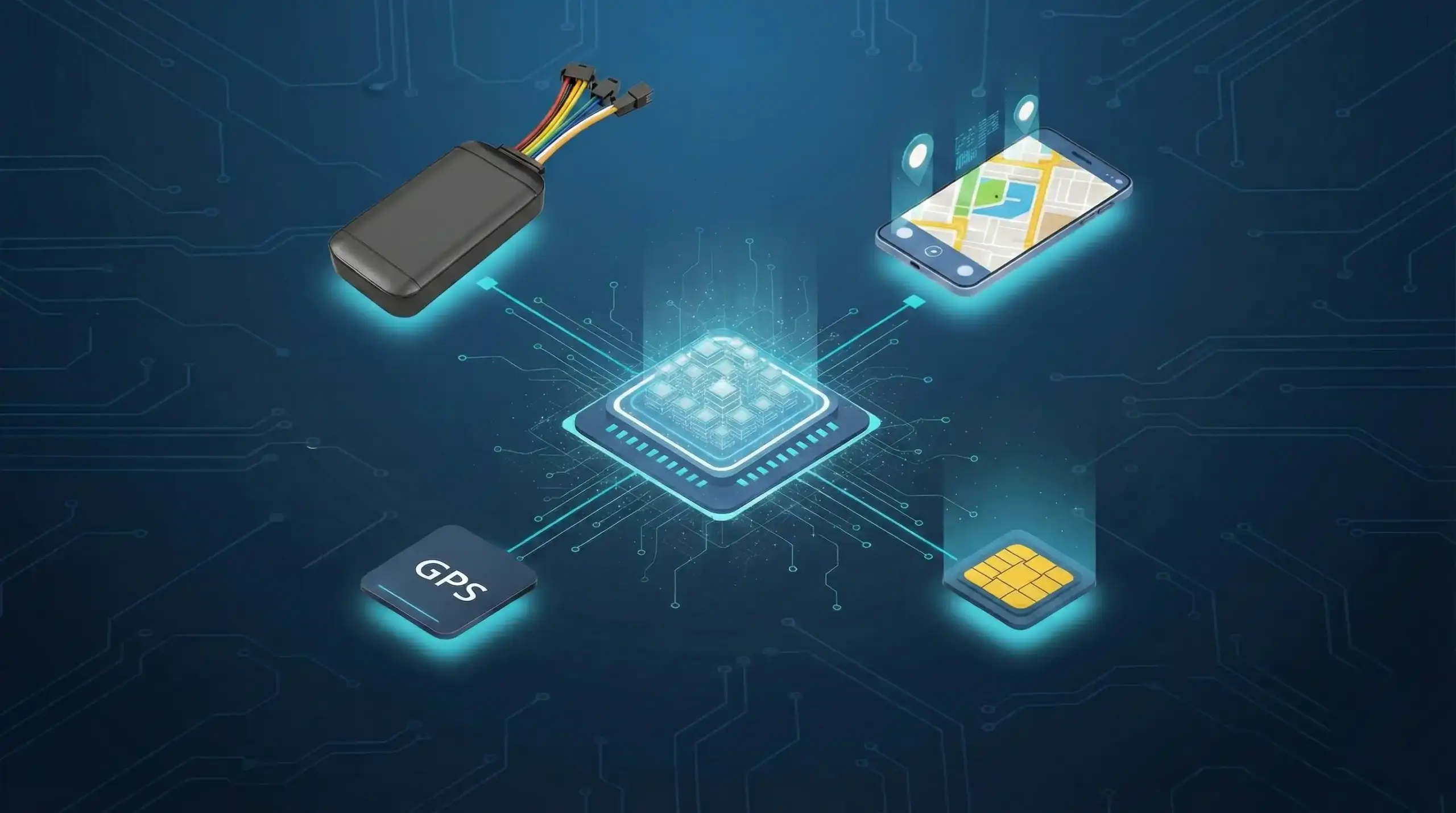Compreendendo rastreadores GPS robustos
Rastreadores GPS robustos são dispositivos específicos projetados para resistir a problemas ecológicos desafiadores e, ao mesmo tempo, fornecer informações precisas sobre o local. Ao contrário dos rastreadores GPS padrão, modelos robustos são criados para oferecer resiliência, garantindo que eles permaneçam funcionais em níveis severos de temperatura, problemas úmidos ou sujos, e também sob o risco de impacto físico. Esta maior durabilidade é crítica para mercados que dependem de monitoramento preciso em cenários imprevisíveis, como a indústria naval.
Entre as características específicas dos rastreadores GPS robustos está sua construção aprimorada, muitas vezes utilizando produtos duráveis que resistem ao atordoamento, ressonância, polvilhe, e acesso à sujeira. Esses dispositivos são frequentemente classificados com uma proteção de acesso (PI) pontuação, indicando sua capacidade de suportar exposição direta a aspectos que podem perturbar a funcionalidade normal do GPS. Para circunstâncias, Os rastreadores com classificação IP67 são totalmente à prova de poeira e podem suportar imersão em borrifos por curtos períodos, sua produção é ideal para aplicações aquáticas onde prevalecem umidade e partículas.
A duração e a conexão da bateria também diferenciam os rastreadores GPS robustos de seus equivalentes padrão. Muitos modelos robustos integram baterias de alta capacidade que podem funcionar por longos períodos sem exigir carregamento regular. Além disso, eles podem oferecer várias opções de conexão, composto por celular, satélite, e, em algumas circunstâncias, Bluetooth ou Wi-Fi, garantindo atualizações de condição confiáveis. Isto é especialmente benéfico em procedimentos marítimos, onde manter o controle dos contêineres de transporte em tempo real é fundamental para melhorar a abertura no transporte global e abordar os fatores de desconforto da cadeia de fornecimento com soluções de IoT e telemática.
A aquisição de informações precisas em tempo real permite que as empresas façam escolhas informadas, especialmente na mitigação de atrasos no transporte marítimo. O uso de tecnologias de monitoramento duráveis, como o sistema de monitoramento de GPS do Salpack, capacita especialistas do setor para acessar conhecimentos valiosos que podem levar a uma melhor gestão logística e eficácia funcional.
Benefícios da implementação de rastreadores GPS robustos em cadeias de fornecimento
Rastreadores GPS robustos funcionam como um elemento importante na otimização das cadeias de fornecimento globais, especialmente para empresas que operam na indústria naval. Esses dispositivos desempenham um papel considerável na abordagem dos fatores de desconforto da cadeia de fornecimento com soluções de IoT e telemática, garantindo que os bens sejam monitorados de forma eficaz em vários ambientes. Ao fornecer informações sobre o local em tempo real, rastreadores GPS robustos melhoram a abertura no transporte marítimo global, permitindo que as partes interessadas tenham uma visão clara de seus bens a qualquer minuto.
Entre os principais benefícios da adoção da tecnologia robusta de monitoramento GPS está a capacidade de realizar monitoramento de contêineres em tempo real com dispositivos sem fio. Esta funcionalidade torna-se progressivamente importante na mitigação de atrasos no transporte marítimo, onde circunstâncias inesperadas podem impactar a eficácia geral da cadeia de fornecimento. Utilizando a tecnologia de rastreador GPS Protrack, as empresas podem determinar possíveis interrupções e tomar medidas positivas, reduzindo assim o tempo perdido e maximizando a eficácia funcional.
Além disso, esses dispositivos aumentam significativamente a segurança, monitorando o problema e o movimento dos produtos durante a viagem. Em circunstâncias em que esteja envolvido frete de alto valor, o risco de roubo ou dano é uma preocupação premente. Rastreadores GPS robustos podem alertar as empresas em tempo real sobre movimentos não aprovados ou modificações em problemas ecológicos, protegendo assim a integridade de suas remessas.
Estudos de situação de vários setores mostram o impacto de rastreadores GPS robustos nas cadeias de fornecimento. Por exemplo, uma importante empresa de navegação executou o sistema de monitoramento GPS Protrack para melhorar seus procedimentos logísticos. Os resultados consistiram não apenas na redução dos custos funcionais devido à otimização do direcionamento e do gerenciamento de combustível, mas também na melhoria da capacidade de resposta às demandas dos clientes.. Com melhor exposição e controle, as empresas podem melhorar seu lado acessível na indústria naval, gerando benefícios consideráveis.
Desafios e fatores a serem considerados na escolha de rastreadores GPS robustos
Ao escolher rastreadores GPS robustos para cadeias de fornecimento globais, as empresas enfrentam vários desafios e fatores a considerar que podem impactar a sua eficácia e sucesso funcional. Entre as principais preocupações está a compatibilidade com os sistemas atuais. À medida que as empresas pretendem abordar os fatores de desconforto da cadeia de abastecimento com a tecnologia IoT, garantir que novos dispositivos de monitoramento se integrem perfeitamente aos sistemas estabelecidos é crucial. Essa compatibilidade afeta a eficiência com que o monitoramento de contêineres em tempo real com dispositivos sem fio pode ser executado, afetando o processo funcional e o compartilhamento de informações.
Outro fator considerável é o equilíbrio entre custo e eficiência. Embora a compra de rastreadores GPS robustos de alta qualidade possa envolver um custo inicial maior, é importante avaliar os benefícios duradouros. Uma avaliação abrangente de custo versus eficiência ajuda as empresas a determinar quais soluções, como o sistema de monitoramento de GPS do Salpack, oferecer o melhor retorno sobre o investimento, reduzindo atrasos no envio e melhorando a abertura nos processos globais de envio.
A escalabilidade é mais um fator a considerar que não pode ser esquecido. À medida que os procedimentos da cadeia de fornecimento se expandem, as soluções utilizadas devem ser versáteis. Rastreadores GPS robustos devem suportar atualizações e melhorias fáceis para acomodar o desenvolvimento e as demandas flutuantes. Esta versatilidade é essencial para mitigar desafios fundamentais no transporte marítimo, melhorando assim os graus gerais de solução.
A confiabilidade do suporte ao cliente também é crítica na escolha de dispositivos de monitoramento GPS. Podem ocorrer problemas, e assistência imediata pode significar a diferença entre procedimentos tranquilos e tempos de inatividade dispendiosos. Por isso, recomenda-se escolher empresas de serviços que ofereçam suporte tecnológico durável e soluções de manutenção para garantir que os sistemas de monitoramento permaneçam funcionais e eficazes.
Finalmente, é importante compreender as restrições das tecnologias robustas de monitoramento GPS. As empresas devem ter em mente fatores como a duração da bateria, indicar acessibilidade em locais remotos, e precisão da informação. Ao navegar por esses desafios e fatores a serem considerados, as empresas podem fazer escolhas de compra informadas que se alinhem com seus objetivos táticos na indústria naval.
Tendências futuras em tecnologia robusta de monitoramento GPS
O panorama da tecnologia robusta de monitoramento GPS está posicionado para se desenvolver significativamente, pertencente a várias tendências importantes que irão melhorar as cadeias de fornecimento globais. Entre uma das novidades mais destacadas está a integração da conexão 5G em dispositivos GPS. Esta tecnologia promete melhorar o monitoramento de contêineres em tempo real com dispositivos sem fio, aumentando assim a eficácia dos procedimentos da cadeia de fornecimento. A alta velocidade, as capacidades de baixa latência do 5G facilitarão uma interação mais rápida entre dispositivos de monitoramento e sistemas de gerenciamento, permitindo que as empresas abordem os fatores de desconforto da cadeia de fornecimento com IoT de forma eficaz.
Outro padrão importante é a consolidação do conhecimento artificial (Ai) para antecipar análises. Aproveitando a IA, rastreadores GPS robustos podem analisar grandes quantidades de informações para projetar possíveis interrupções no transporte marítimo. Isso permite que as empresas reduzam proativamente os atrasos no envio, garantindo um processo de remessa global mais confiável e claro. O uso de fórmulas de inteligência artificial para monitorar padrões em logística pode levar a uma tomada de decisão mais inteligente e a uma maior eficácia funcional na indústria naval.
A tecnologia da bateria também está progredindo rapidamente, fornecendo soluções de energia mais duradouras para dispositivos GPS robustos. As capacidades aprimoradas da bateria não apenas prolongam a durabilidade dos rastreadores GPS na área, mas também permitem o monitoramento contínuo sem recargas regulares. Tais melhorias são críticas para preservar a funcionalidade de dispositivos como o rastreador GPS Protrack em problemas ecológicos difíceis frequentemente encontrados durante procedimentos marítimos..
Finalmente, o crescente foco na sustentabilidade na fabricação de dispositivos não pode ser negligenciado. À medida que as partes interessadas na indústria marítima se concentram em métodos ecológicos, A promoção de soluções duradouras e robustas de monitoramento GPS está acabando sendo crítica. Este padrão não só se alinha com os objectivos ecológicos globais, mas também pode melhorar a abertura geral na logística através da publicidade de técnicas de fornecimento e produção responsáveis..









